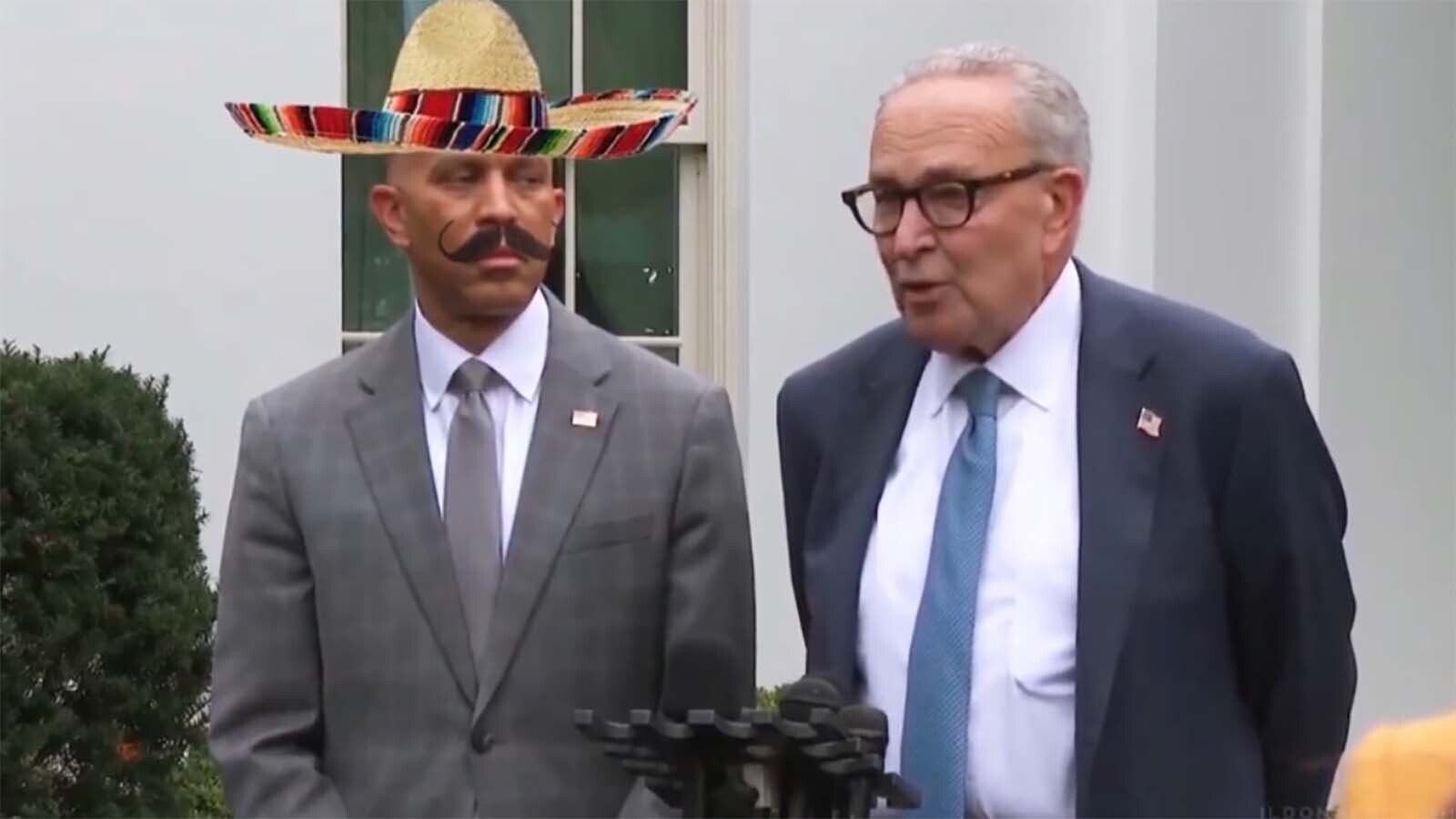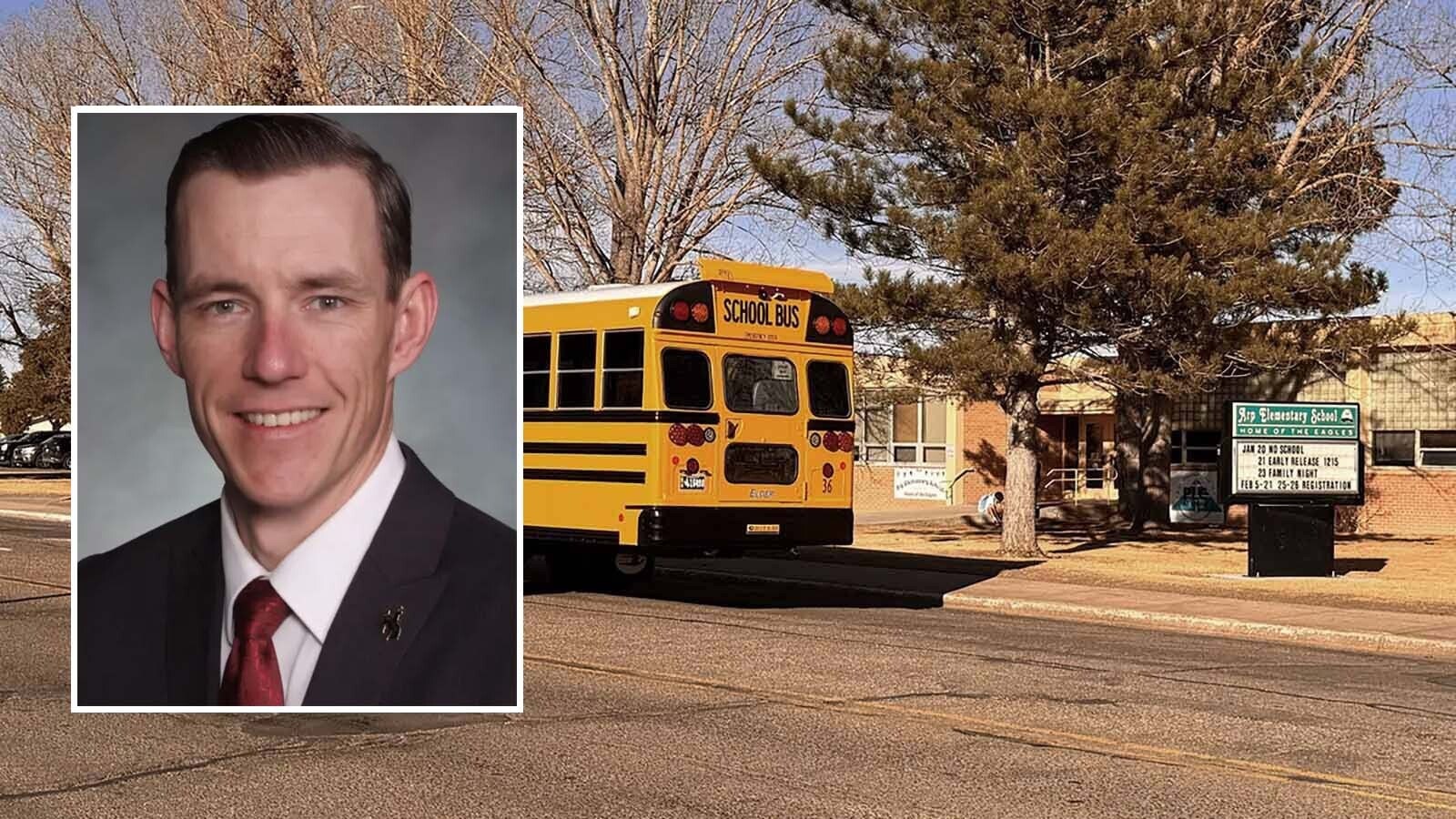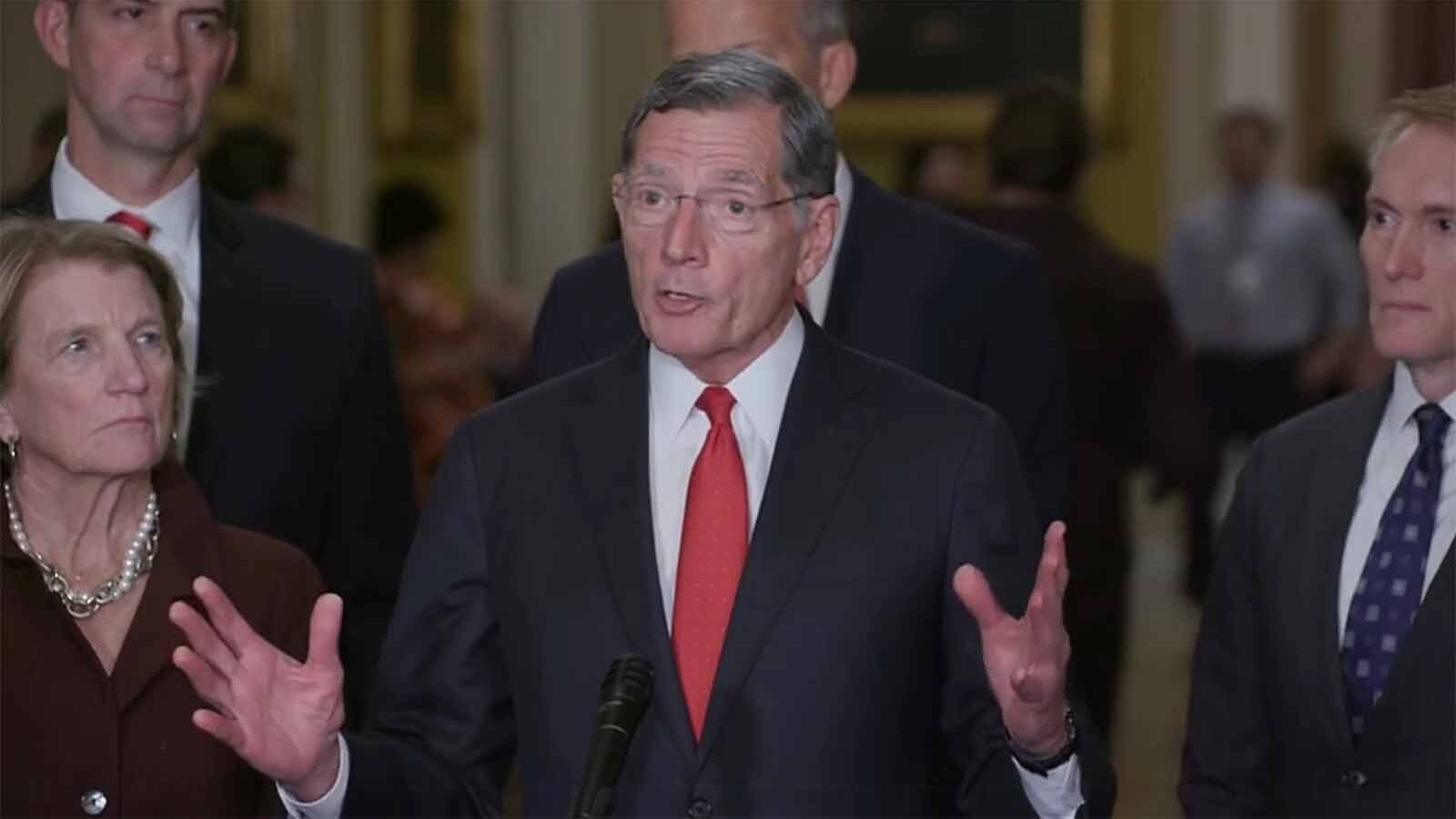A proposed Wyoming law to ban sanctuary city immigration policies cleared its final legislative hurdle Wednesday and is headed to the governor’s desk for passage or veto.
The milestone happened the same day a U.S. Congressional committee grilled four Democratic mayors of major cities about their own sanctuary-style governance – an indication that Congress, like the Wyoming Legislature, is bracing to battle local policies that limit federal immigration enforcement.
If it survives Gov. Mark Gordon’s desk, Wyoming legislative House Bill 133 would ban all the state’s local governments from passing policies restricting their employees from working with federal immigration authorities, like U.S. Immigration and Customs Enforcement (ICE).
If a local government did pass such a law, a Wyoming resident could file an action with the courts to make the government reverse course, under the bill’s language.
Gordon’s spokesman told Cowboy State Daily in a text message Wednesday that the bill will not see action today. The governor has 15 days to sign, veto, or let it pass without his signature.
Lawmakers brought the bill after Wyoming immigration controversies erupted last fall, surrounding a rocky working relationship between Teton County and U.S. Immigration and Customs Enforcement (ICE). Yet, Teton County leadership told Cowboy State Daily at the time that the county hasn't enacted any sanctuary city policies.
The Grilling
The U.S. House Committee on Oversight and Government Reform summoned four mayors of major U.S. cities to its hearing on Wednesday, to answer questions about whether they have sanctuary city policies and their impacts.
New York City Mayor Eric Adams conceded he runs a sanctuary city.
The other three, Denver Mayor Mike Johnston, Boston Mayor Michelle Wu, and Chicago Mayor Brandon Johnson, tried amid interruptions to give more nuanced answers than the simple yes or no Committee Chair James Comer, R-Kentucky, asked of them.
Always These Detainers
The breakdown in discussion between pro-immigration enforcement lawmakers and Democratic mayors kept circling back to detainers.
ICE issues administrative detainers frequently, which is a request to a local sheriff to keep an illegal immigrant in the jail for up to 48 hours after what would have been his release date, so that ICE can collect that person.
Though they’re common practice in many areas, some sheriffs and other local officials have policies saying they won’t honor those detainers and would require a judge-signed criminal warrant instead. That’s because the administrative detainers are prone to legal challenges, with some courts finding civil detentions without criminal probable cause violate the Fourth Amendment of the U.S. Constitution.
Denver’s mayor and Rep. Jim Jordan, R-Ohio, got into a heated exchange on the issue, which has also surfaced as a controversy in Wyoming's Teton County.
It’s Happening In The Parking Lot
Jordan asked about 23-year-old Abraham Gonzales, who is a suspected member of the Venezuelan gang Tren de Aragua, according to ICE’s Denver-based Enforcement and Removal Operations team. He’s been arrested multiple times since 2023, including for aggravated assault, motor vehicle theft and felony menacing, Jordan said during the hearing.
ICE sent Denver authorities an administrative detainer six days ago, asking for them to hold Gonzales an extra 48 hours, said Jordan, adding, “Does that refresh your memory?”
The jail had custody of Gonzales for about a year, Jordan added, yet jail authorities gave ICE one hour’s notice to pick up Gonzales on his release date. By the time agents arrived, Gonzales was in the parking lot.
By ICE’s own account, posted to X.com one day before the Congressional hearing, ICE “was forced to arrest him in public, where he assaulted officers.”
A low-quality video of the incident shows about six ICE agents chasing the man in front of the jail before surrounding him and arresting him.
“(If ICE agents) come in the facility and get them does it take six officers? It probably takes two, doesn’t it?” asked Jordan. “That’s how stupid sanctuary city policies are, and what they mean to the community.”
Johnston countered, saying city staffers work with ICE agents and haven’t had an incident like this before.
He emphasized at the beginning of the hearing that though Denver had the nation’s largest per-capita influx of 42,000 immigrants sent to the city by border states, over the course of 18 months, the city pooled labor and resources to help people into housing and jobs. And violent crimes like homicides have decreased in the city over that time period.
The (Former) Honcho
John Fabbricatore, who served previously as ICE’s senior executive director for Colorado and Wyoming, has told Cowboy State Daily that possible constitutional problems from 48-hour civil holds have always been an issue for him, and have subsisted in a grey area of law. On the other hand, he noted, the detainer system was passed into law by Congress – not by President Donald Trump or a fleeting rule.
But Fabbricatore still believes Democratic politicians use that as an excuse, since there are other ways to avoid detainers’ potential legal problems, he told the outlet on Wednesday.
Local sheriffs can give ICE more notice, long before it’s time to let an illegal immigrant out, that the release date is approaching. Or they could establish contracts with ICE to act as federal immigration holding facilities themselves.
“It’s just a tactic. It’s a tactic they’re using to stop illegal immigration (enforcement),” he said.
If ICE were to get judge-signed, criminal warrants every time they wanted to issue a detainer, it would “gum up the system,” and could require federal prosecutors to increase their staffing “tenfold,” he said.
Local Control
But Rep. Gerry Connolly, D-Virginia, told the committee Wednesday that local resistance to ICE maneuvers is more than a tactic. The issue boils down to local control, local sovereignty, and letting the people closest to the issues resolve them.
“Today Republicans have hauled before us the mayors of four major American cities, to frame them as lawless, because those officials have some limits on how intrusively and aggressively their own officials can conduct immigration (operations),” said Connolly. “History is calling on us now to stand up for (our) laws and traditions.”
Clair McFarland can be reached at clair@cowboystatedaily.com.





